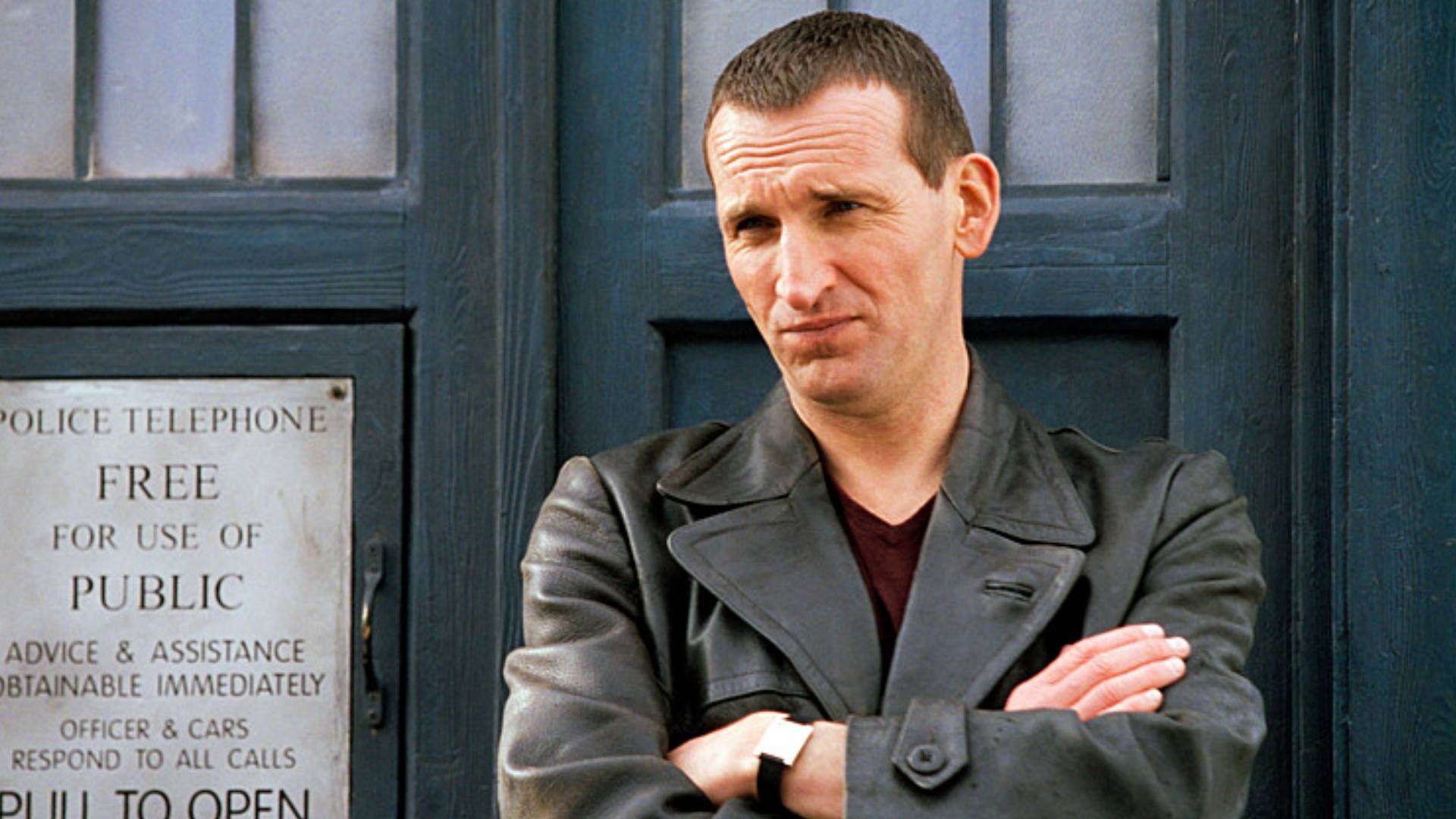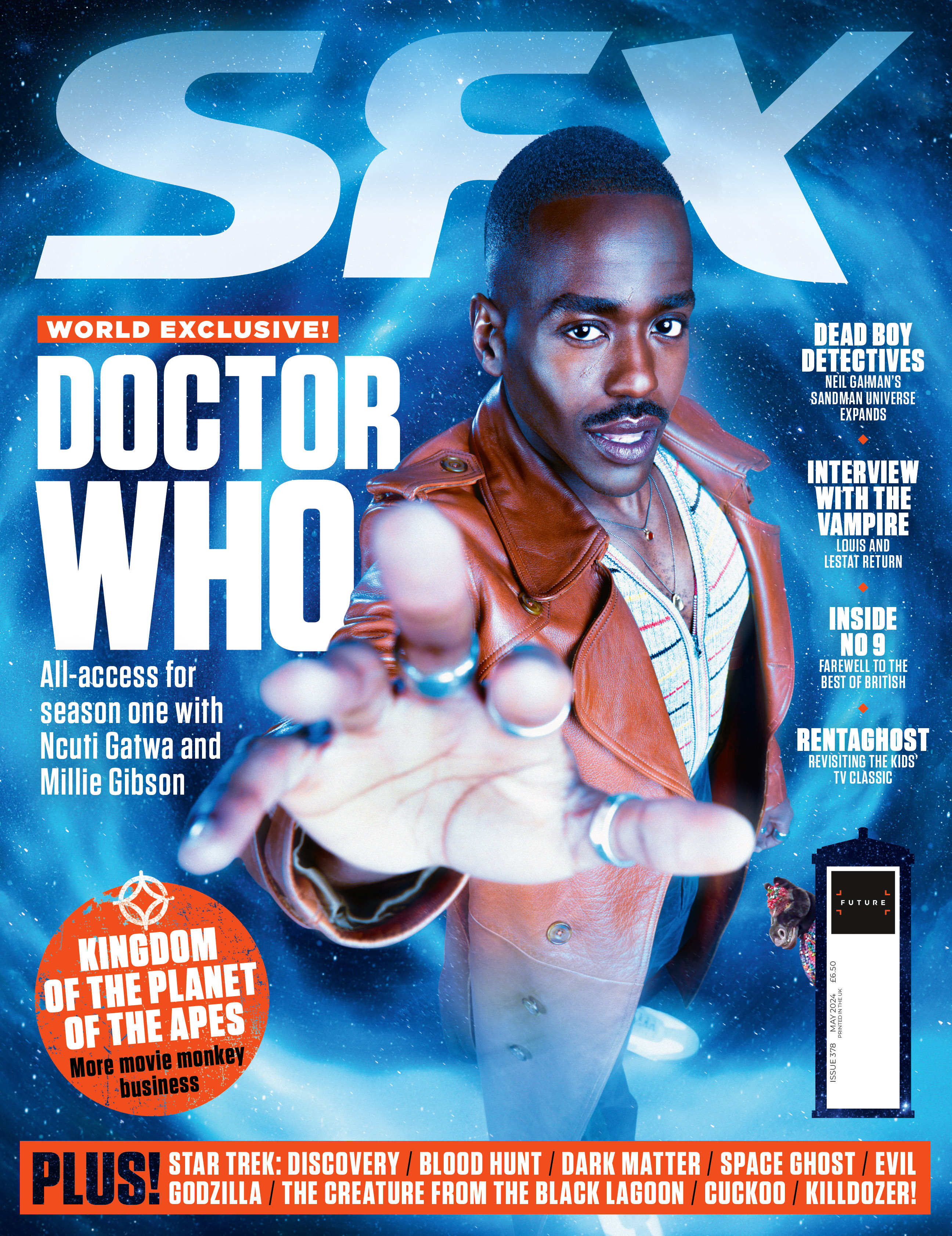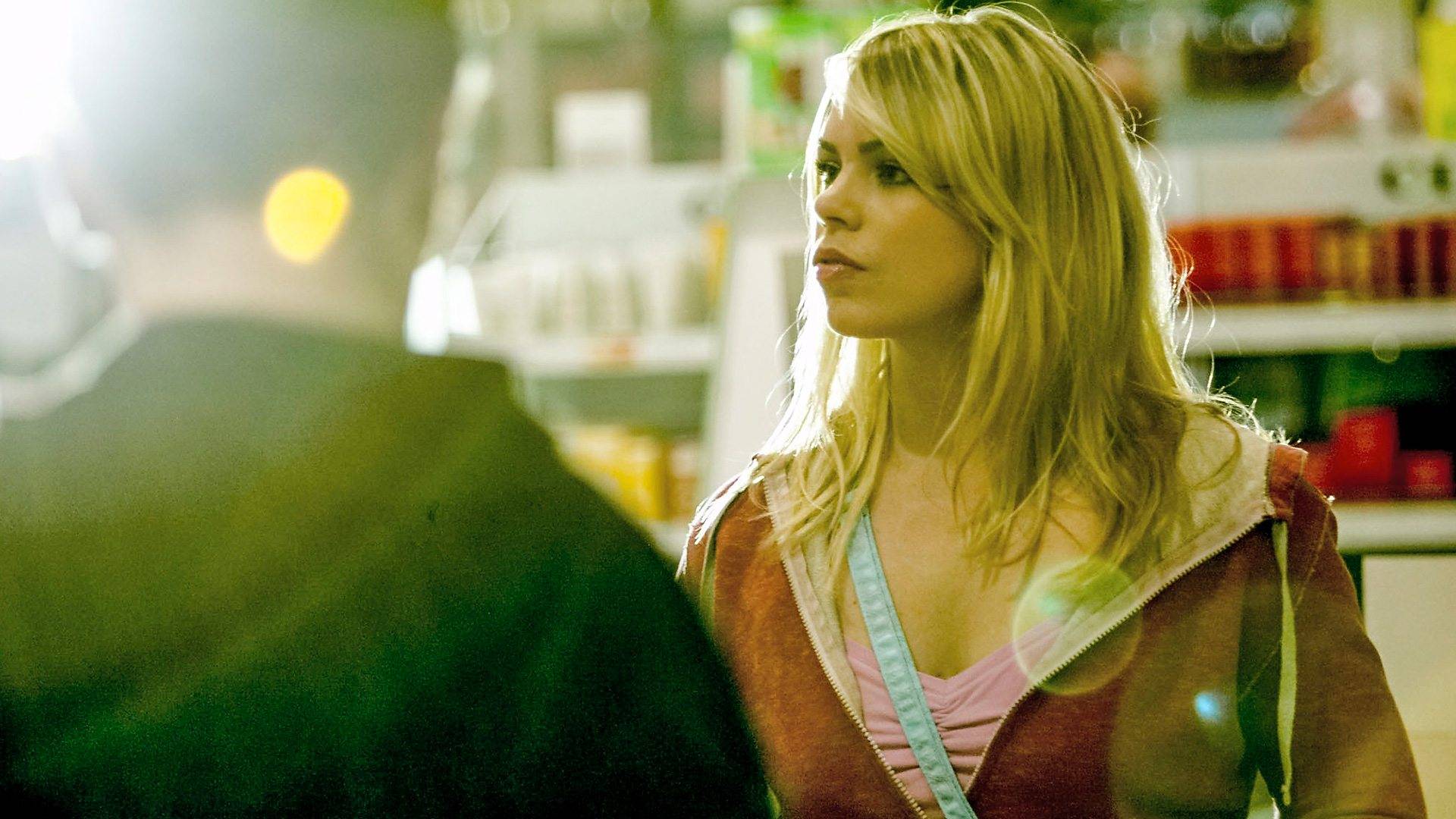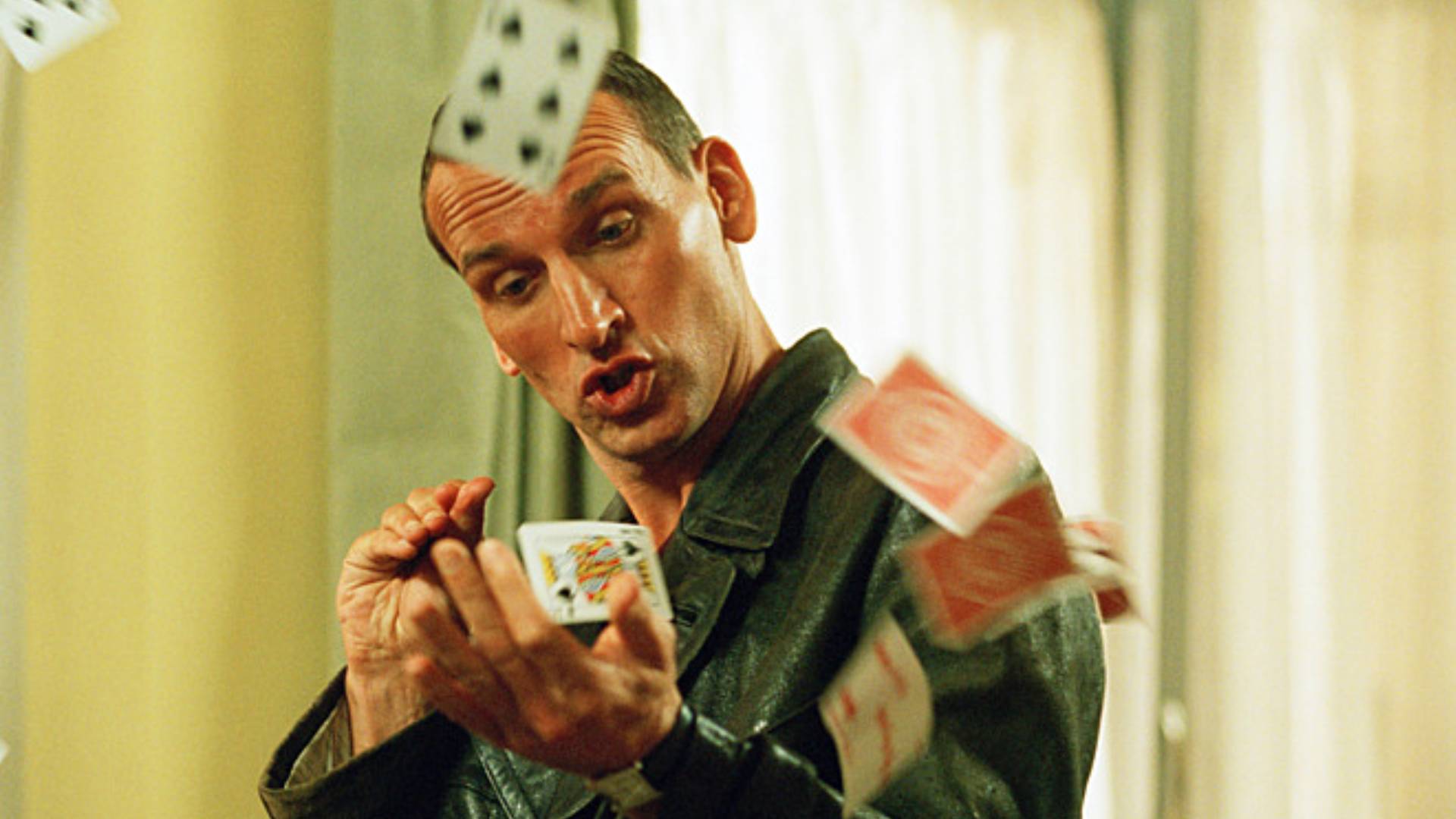Twenty years on from Doctor Who's return, here's what Russell T Davies had to say about his first ever episode
'Rose', the first episode of the Doctor Who revival, aired on 26 March 2005. Back in 2018, showrunner Russell T Davies talked to SFX magazine about the series' return

Back in spring 2003, Doctor Who, as TV drama, was dead as a dodo. Over 13 years had passed since the final episode of the original series; nearly seven since a Paul McGann TV movie. Fans had lost hope. Then the miraculous happened… Despite being a lifelong fan, Russell T Davies was tentative about taking on the commission.
"I tend to give interviews saying, 'I leapt at the opportunity!'," he admits, "But it meant going to work for the BBC in-house, which is something you just don’t do, as a freelance writer – career-wise, it’s the wrong move."
With Davies initially busy on ITV drama Mine All Mine, it was months before a meeting to discuss the shape of the series took place. "I spent those months worrying, thinking, 'This is never going to work!'" Davies remembers. "Then I went in to see [BBC Head Of Drama] Jane Tranter, expecting a long list of conditions. She just said, 'What do you want to do?'"

This interview was first published SFX Magazine Issue 300, 2018. You can subscribe to SFX here so you never miss an issue!
He was given almost complete carte blanche. "The one thing they did impose was 45-minute episodes," Davies recalls, "And they said, 'Bear in mind it’s going out at seven o’clock on a Saturday.' Lois & Clark is the thing they talked about most. They had strong memories of how colourful, sexy and funny that was. Which I loved, because I’d watched that, and completely agreed."
When 'Rose' eventually aired on 26 March 2005, one thing that seemed radical was how central the companion role was – something the title underlines. "It’s a funny title, isn’t it?" Davies muses. "You’d think it’d be called ‘Rise Of The Autons’ or something. I look back and think, ‘That’s a bit of a dull title, actually!’ You couldn’t write a woman who was just a support anymore. I didn’t even have to have that debate in my head, because that’s not what I do with any lead character."
Embedded in a council estate milieu, 'Rose' also made previous Who look very middle-class. "I suppose so, yeah," Davies says, "Though there’s nothing wrong with being middle class – that’s the majority of the country. That’s a 2005 thing. I think television’s a bit posher now. Stuff like Sherlock shows actually you can sit around and be very sophisticated, and that’ll get a huge audience. It’d be interesting whether you’d need to do that now."

Davies reckons the biggest shift was a much greater degree of emotional insight into the Doctor and his companion. "The profoundest change is to say that the two lead characters are the lead characters in the drama," he explains. "I know that sounds odd, but that wasn’t necessarily the case before! In the old days they’d be functions of the plot, and give away very little about themselves. That wasn’t a mistake – that’s how television was written then. But that’s not how television was written in 2005. So you have to correspond with the time, and not be stuck in aspic."
Get sneak previews, exclusive competitions and details of special events each month!
Davies explains this was an inevitable consequence of the evolving mechanics of television production. "What changed it is the camera," he says. "It used to be a four-camera show. That’s like a proscenium arch on television. When the single camera went out on location and was chasing Tom Baker around a quarry in ‘The Deadly Assassin’, that footage is more alive and alarming, and you’re much closer to the Doctor than you are in the four camera set-up. With a single camera shoot, you’re with the characters in a deeply personal sense. You’re on their eyeline, in their emotional world. So by being made on a single camera, the programme’s connecting you with Rose and the Doctor on a more resonant level – almost not by design, but because that’s how you make things now. You’re talking a different emotional language."
The programme was literally talking a different language, too. It’s hard to imagine previous Doctors calling humanity "you lot", or mentioning chips! "There was a veneer of things that people assumed sum up the Doctor," Davies recalls, "Elements that were just surface gloss, like quoting Bonaparte and calling his ship 'old girl'. During our first year, everyone’s scripts came in with him saying 'My dear' and stuff like that, and I had to strip it out. I wanted to call in kids on council estates who could be hanging around street corners, to make them watch television and see something they recognise; to say to them, ‘This is your world, not a removed TV world.’"
- For even more from SFX, sign up to our newsletter list
Three days before 'Rose' aired, SFX interviewed Christopher Eccleston, who mentioned a message Davies sent him early on: "Russell said, ‘How are you getting on playing this? I’m finding it very difficult to write, because he’s just in the moment, isn’t he?’ When he texted that I thought, ‘That’s what I’m going to be: eternally in the moment.'"
"That’s true," Davies says. "I’m fascinated to hear that I texted that way back then. It was a discovery that I kept on making about Doctor Who, that it exists in the present tense. And that’s the Doctor: he’s always on the front foot, always reacting."
Davies points out that being "in the moment" is also his general style. "I write stuff that’s full of energy, and it’s writing in the present tense. The fact is, 99% of television is written by middle-aged people sitting in a chair, and it sounds like it! I can hear the chairs, with their suspended back support and nice arms!" A mental image flashes up of Davies jogging on the spot as he types, "The Doctor runs down the corridor…"
"I’m not saying I stand up when I write," he clarifies, "but it should feel as though you’re standing up – as though you’re putting energy onto the page. And that’s very true when your lead character’s the Doctor. I think there’s one moment where David Tennant sits down. In ‘Army Of Ghosts’, Yvonne Hartman’s about to open the Ghost Shift, and the Doctor sits down and lets her… which stops her doing it! The Doctor never takes it easy. And if you do get rare scenes where the Doctor sits down, you feel the energy collapse, just like that. It’s extraordinary to write!"

Discussion of Eccleston’s performance leads us to a sensitive subject. In a March 2018 interview with the Radio Times, the actor spoke of a breakdown of trust between him and the producers. Davies makes it clear he’s not looking to "have his say" in reply.
"If it gets into any sort of tit for tat then I’m having a conversation with my lead actor via the press, and that’s not on," he explains. "What has to be remembered when the show’s being discussed in the present tense, now, is that I was his employer – I was his producer. I have a duty of care towards any lead actor I work with, so I have a duty of care towards Chris in that moment. He’s free to say and explore whatever he wants – that’s fine. This duty of care involves respecting him and listening to him at all times. That’s my job. And that duty of care towards him will extend for the rest of our lives. He will always be my Doctor, and I will always be his producer."
Davies is also keen to acknowledge how central Eccleston’s performance was to the series’ success – and how bold it was for him to put himself forward in the first place.
"The thing I’ve got to say is that Chris is a magnificent actor and a magnificent man – he’s truly a leader of men – and he was a magnificent Doctor Who as well," Davies says. "You forget what a brave move it was to take the part on when the press were quoting people like Paul Daniels as the next Doctor. It was a huge leap for Chris to make, and I love what he did. I think his comedy is funny – he plays it brilliantly. I think the darkness is off the scale with him – when the Doctor’s angry, it’s spectacular. It’s a magnificent, never-to-be forgotten Doctor, and it was an honour to work with an actor delivering a performance like that."
You can read more about Doctor Who in issue 391 of SFX, on sale 26 March 2025, which includes a 10-page feature on Ncuti Gatwa's second season.
Ian Berriman has been working for SFX – the world's leading sci-fi, fantasy and horror magazine – since March 2002. He's also a regular writer for Electronic Sound. Other publications he's contributed to include Total Film, When Saturday Comes, Retro Pop, Horrorville, and What DVD. A life-long Doctor Who fan, he's also a supporter of Hull City, and live-tweets along to BBC Four's Top Of The Pops repeats from his @TOTPFacts account.


